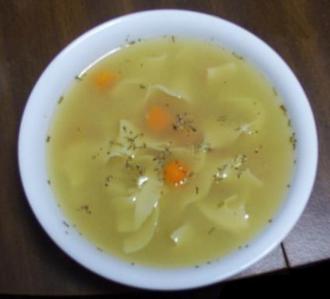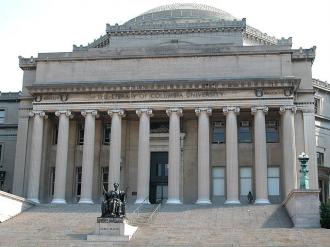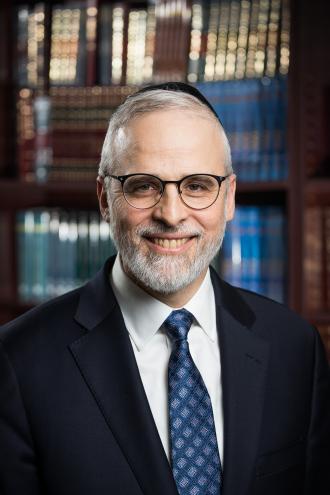We are taught that in the days preceding the coming of Moshiach tragedies will befall us at such a pace and intensity that ‘the most recent ones will cause us to forget the earlier ones.’
After trying to absorb the message in the recent calamity in Meron, we are now faced with the onslaught of hatred, destruction and death unleashed against our people, most severely in Israel, but as well in communities around the world.
The trauma they and their poor children are experiencing is unfathomable, in light of what they have already endured.
Ironically the missiles began falling as we were entering the first day of the month of Sivan, the day in history the Children of Israel had arrived and camped at Mount Sinai after taking leave from Refidim.
The Talmud reveals that we refer to the mountain and desert region we received the Torah in, as סיני —/Sinai, because from there שנאה/hatred descended upon the world, the word Sinai and Sinah sharing a similar root and pronunciation.
Some suggest it refers to the hatred G-d had for the nations that rejected His offer of Torah, while others understand it as prodding the other nations’ hatred for the Jewish people and their claim of a special status as the chosen of G-d, who received His gift of Torah.
(רש"י ורבינו בחיי)
It seems so odd that we refer to this mountain and desert as Sinai simply because it stoked hatred in the world.
The Bais HaLevi, the Netziv, and the Meshech Chochmah all explain that G-d implanted into the DNA of His world that when we as a nation seek to mimic the behavior of the nations of the world, forgetting our special status and neglecting our unique responsibilities, He reminds us by provoking the other nations’ hatred to rid themselves of ‘the conscious of the universe’. Hopefully this will prod us to wise up in living up to the standards of Torah, bringing back His intended equilibrium to the world.
Although this is certainly a significant tool in G-d’s arsenal to keep us in line, but why do we extol this unfortunate reality, it is merely medicine we need after we fall ill?
Perhaps I may suggest that ‘the hatred that descended to the world’ refers to our despising the material aspects of this temporary world. Upon accepting the Torah we became enthused by a higher reality, one whose thrilling experience transcends any pleasure this earth can offer. Our ability to look contemptuously at the alluring offerings of ‘this world’, knowing that it pales in the joy that awaits one who regales in the delight of a Torah inspired life, granted to those chosen as His cherished children, is what this ‘hatred’ that descended is all about.
True, the nations of the world abhor that privilege we possess, but that is not the primary lesson, merely a consequence. If we squander the opportunity for exquisite connection with G-d, trading it for vacuous pursuits of imagined joys, we have failed in being that chosen son, and G-d will coax our memory by allowing our enemies to express their jealous hatred, bringing us back to our senses.
We have all been astounded by the elevated lives each of those souls who perished in Meron lived to their last moments. We have also been privy to the remarkable families they were raised in, who all displayed an awe-inspiring inner joy and close relationship with G-d even as they faced the indescribable pain of their losses.
A father whose young son accompanied his Rebbi to Meron, only to perish there, comforted the guilt-ridden teacher who could not save the child he was entrusted with, by thanking him for being the one who brought his son to such a holy place to die in. He remarked to the Rebbe that rather than meeting his Creator because of a car accident he was privileged to depart in the embrace of Rebbi Shimon bar Yochai, thanks to his beloved Rebbe!
These are people who ‘hate’ the trappings of an empty world and sense the joy of being the chosen of G-d.
We must see in the sudden turning of our enemies against us as a desperate reminder to never forget on what plane and realm we must live on, far removed from the trappings of ‘this world.’
The latter disturbances should not cause us to forget the earlier troubles, but rather compel us to be inspired to bask in the joy of our special bond, that empowers us to overcome the most difficult challenges of life with our heads up.
In 1943 a large group of men gathered in the Lodz Ghetto on the Yom Tov of Shavuos. Despite the terrible conditions and lack of food, they managed to secure potatoes and some candies to distribute amongst the several hundred who gathered to buoy their broken spirits.
One member of the group, a grandson of the Saintly Tiferes Shlomo, the Radomsker Rebbe, despondently blurted out — quoting the verse that describes the conditions of their ancestors millennia ago in Egypt, “תבן/ straw, wasn’t given to your servants...”, making a play on words where the word תבן can also mean ‘understanding — “Ribbono shel olam, give us understanding so we may know why we must suffer so...”, breaking down in bitter tears.
What was supposed to elevate their spirits on the holiday of Shavuos was now in danger of turning into Tisha B’Av.
One of the inspired young men, Reb Shimon Benesch jumped up onto the platform, faced the crowd and said, “You are asking why we are suffering. The answer lays within the very Yom Tov we are celebrating. The Torah was given on Mount Sinai, emphasizing the fact that from that moment hatred descended upon the world, the other nations now despising us. Their hatred stems from the fact that we are different, that we are the Chosen Nation. ‘You have chosen us..’, so that we will never turn into the animals our oppressors transformed into. When we suffer, we must remember it is because we were chosen, we are special. True, we must endure in pain, but that is a reminder that we are truly privileged and have retained our dignity and stature. The moment we no longer sense that pain, that is when we are truly doomed.”
Their spirits soared as they sang in unison Ata vechartanu mikol ha’amim...
Specifically in these stressful and worrisome times may we remember that we are loved, we were chosen.
May that awaken us to refocus on our mission, dedicating ourselves with greater resolve in living up to that glorious and privileged role.
באהבה,
צבי יהודה טייכמאן















